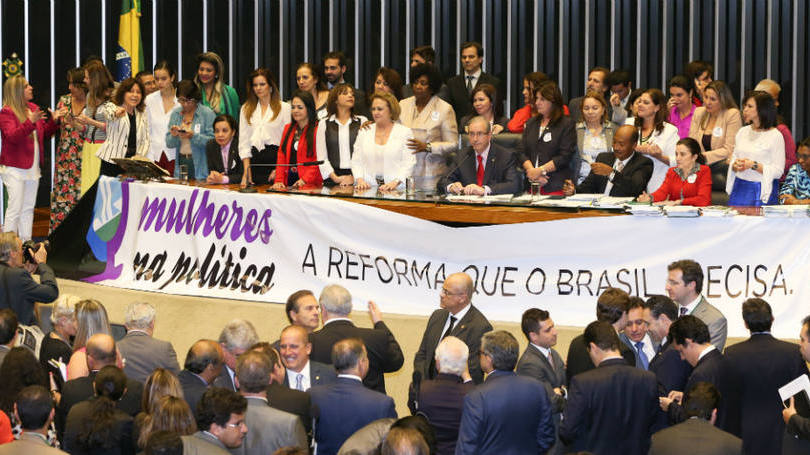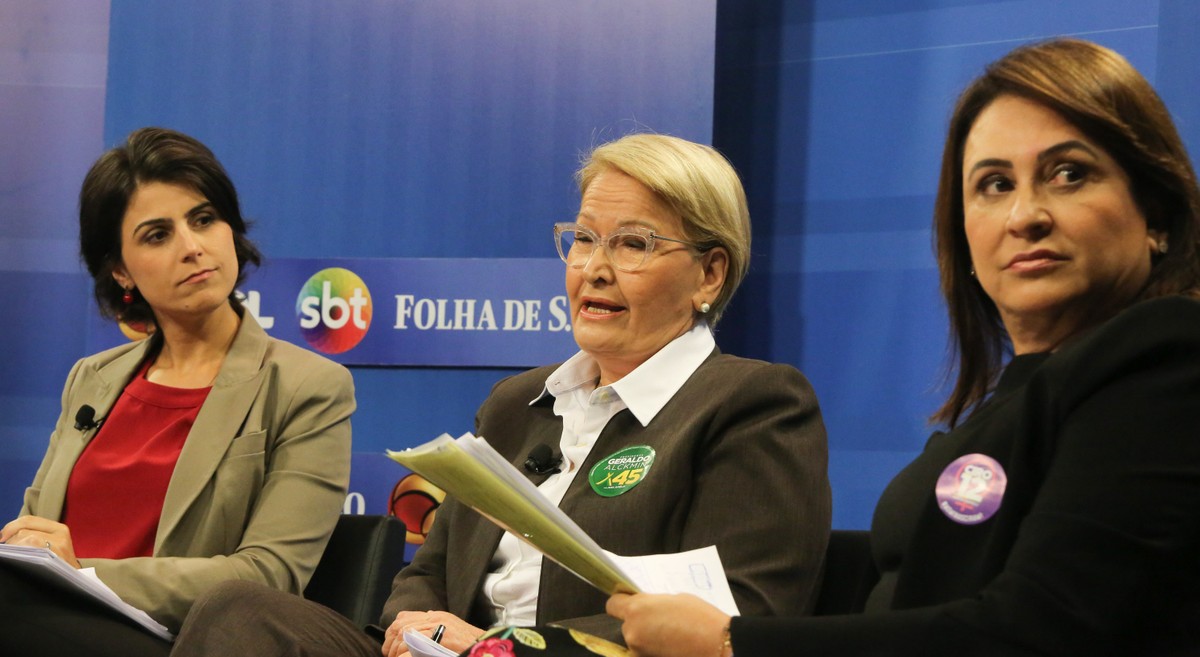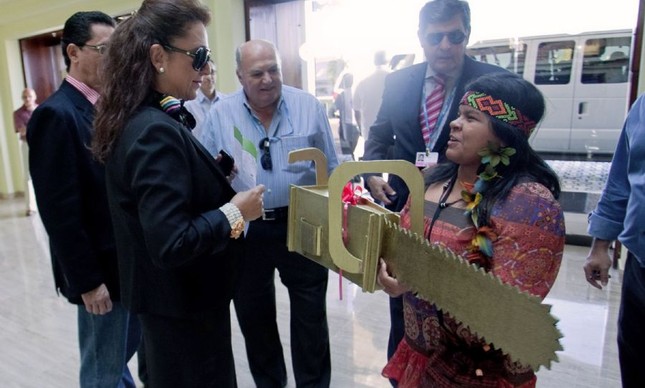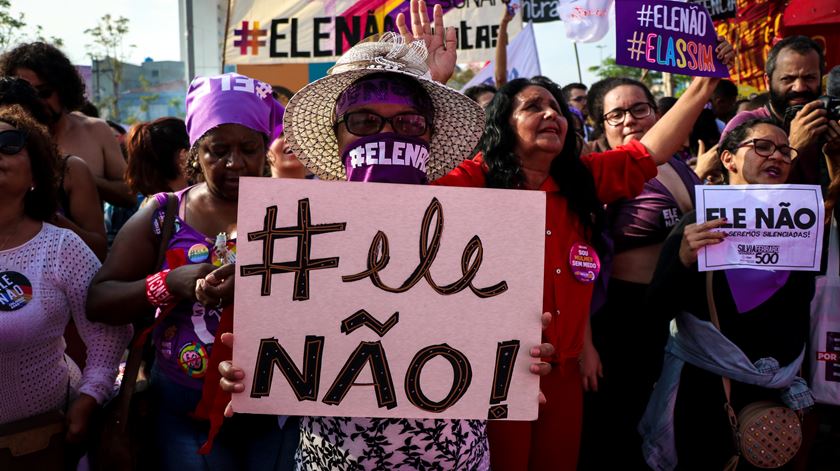
By Denise Mantovani[1] and Maria Lígia Elias[2]
It is not easy to analyze an electoral context in “real time”. But we cannot, however, escape from examining the 2018 Brazilian elections from a feminist gender perspective. This is so because the themes that inhabit the feminist perspective are at the center of an electoral process in which the leading candidate, Jair Bolsonaro, is a far-right misogynist, racist and violent politician. While the growth of political conservatism is not new in Brazil, in the current elections it has assumed a new scale. In this risky and very complex scenario, women have a “decisive” role. They are the majority of voters (52%) and constitute the largest percentage of “undecided” voters.
Also, for the first time in history, new electoral rules are in force, which requires that 30 percent of the resources from parties’ funds are allocated to female candidates. In result, two of the thirteen presidential candidates are women – Marina Silva (REDE) and Vera Lúcia (PSTU) – and there are five female candidates for vice president: Suelen Nascimento (Patriota), Katia Abreu (PDT), Ana Amélia Lemos (PP), (PSDB); Sonia Guajajara (PSOL), Manuela D’Ávila (PCdoB-PT). In addition, the number of women candidates for federal and state legislatures has substantially increased.

This scenario, on one hand, is unprecedented. On the other, it requires us to question some aspects: What is the quality of this larger “presence” of women in electoral campaigns? Does this larger female presence ensure adherence to the historical claims of the feminist movement? How is this novel presence on the central stage of electoral politics perceived in society?
One parameter to measure the quality of women’s electoral presence is, for example, to examine what president and vice-president candidates are projecting and to look into what they are saying. In the case of the presidential candidates, Vera Lucia, as a candidate of a minority radical left party, has a clear position on the rights of women and manifests herself as a (left) feminist. While Marina Silva in her past trajectory has avoided any association with feminism, in particular with so-called “difficult issues”, such as abortion and sexuality, in this campaign she systematically emphasizes her identity as a woman and tries to appeal to the female vote.
Among the candidates for vice-president, Sonia Guajajara and Manuela d’Ávila are frankly located in the feminist camp. Kátia Abreu is neither left-wing nor feminist, but she projects the image of a successful businesswoman and politician, in ways that may attract female voters, especially amongst middle-class women. Ana Amelia, however, has a long-standing career as a politician located at the conservative side of the political spectrum and fulfills the classic requirements of the “feminine”. Although very diverse, socially and ideologically, in our evaluation, albeit in different degrees, these candidates have not been as assertive as they could have been in relation to the gross disparity of gender in politics. Several of them define themselves as “collaborators”, “companions” or “supporters” of presidential candidates. And even at the left or at the center-left sides of the spectrum, these women strongly emphasize their experiences as “wives and mothers.”
Undoubtedly, especially when considering the conservative climate presiding over the election, it is important and necessary to place motherhood in the electoral debate. If nothing else, because the exercise of motherhood implies rights and social prerogatives, including the right to decide whether to have children or not. The question is, however, how to address it. Our observation is that, in general, the candidates’ discourses, including on the left, are less focused on the social and rights dimensions of motherhood than on the narratives on how to be an active and brave mother. In addition, the right to abortion, while being subjected to virulent attacks on the part of the right, is once again sidelined from the central stage of this electoral debate, even though it appears in a variety of proposition in the formal programs of left-leaning and center-left candidates.[3]

Not less importantly, the larger presence of women as high-level front liners of the 2018 elections has not, in our view, received the deserved attention, especially on the part of the international media. In the case of Brazilian vehicles, the coverage of this new phenomena, when it occurred, was usually based on a rather conventional frame that emphasizes the greater political presence of women, using a binary conception of gender and not taking under consideration social diversity, markers of race, ethnicity and sexuality. As Brazilian black feminists have detected [4], the mainstream media neither valued nor examined more closely the racial-ethnic dimension of president and vice president candidates, even though two of them are black women — Marina Silva and Vera Lúcia — and one is indigenous, Sonia Guajajara. The presence of Sonia on the electoral stage is not only groundbreaking but very significant in an electoral process characterized by the growth of the extreme right that carries with it those forces that systematically attack the rights of indigenous peoples.
However, in the 2018 Brazilian election, the place and significance of women and feminism must, in fact, be sought elsewhere: in the spontaneous and massive mobilization against the possibility of electing an extreme right-wing, misogynist and racist candidate. This wave erupted when Ludimilla Teixeira, a black young woman from Bahia, without party connections, created the group Mulheres Unidas Contra Bolsonaro (Women United Against Bolsonaro in English) on Facebook and the hashtag #EleNão. In less than two weeks, the group had expanded to two million women. It did not, however, receive the proper attention from the mainstream media, even when it was virulently attacked by pro-Bolsonaro activists. Even so, this ground level and spontaneous initiative generated one of the most relevant political events of the electoral campaign: the massive September 29th #EleNão street protests that spread across the country, but also worldwide.

This broadly based mobilization, comprising poor and middle class, black and indigenous, lesbians, trans, straight, migrant, religious, non-believer, multi-generation women, fueled the electoral campaign stage with a new wave of energy. “Together we are giants” was the motto heard everywhere from these voices called for the defense of democracy, of fundamental human rights and pluralism. This message remains in the air, even when subsequent polls have shown the increase in the number of potential Bolsonaro voters, even among women.
This growth, it should be said, was immediately interpreted by the media and several main political actors as a negative effect of the #EleNão mobilization. As analyzed by Isabela Oliveira, this interpretation ignores other key factors at play in the electoral scene. It also reflects a classic misogynist bias: “this was the women’s fault” or yet more scathing “this was the feminists’ fault”. This narrative, in addition to being partial and unjust, carries waters to the mill of the grotesque antifeminism that pervades this electoral scene. It also contributes to conceal women’s perspectives on the structural problems of the country that hit them harshly, albeit in different ways, but remain undebated at the backdrop of this troubled electoral scenario. We fully bet on a second round and on the possibility that it will open the space for these structural issues, which are crucial for gender, ethnic, racial and economic equality and the preservation of democracy and plurality to be properly debated.
—
[1] PhD in Political Science from UnB, researcher on feminist theories, media and politics.
[2] PhD in Political Science from USP and postdoctoral fellow at the UnB Policy Institute,
[3] The legalization of abortion is in the program of PSTU (Vera Lúcia) and PSOL (Guilherme Boulos and Sonia Guajajara). The programs and governments of the PDT (Ciro Gomes) and Pátria Livre-PPL (João Goulart Filho) mention guaranteeing access to legal abortion in legal cases and decriminalization. The PT program (Fernando Haddad) does not use the word abortion but advocates guaranteeing sexual and reproductive rights. The same language is used by Rede / PV of the candidate Marina Silva.
